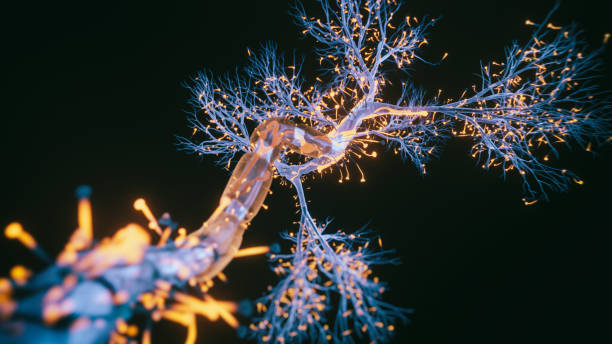Blog
doctorhub360.com neurological diseases: Understanding and Management

Neurological diseases are conditions that affect the brain, spinal cord, and peripheral nerves. These disorders often disrupt normal bodily functions, leading to severe impacts on the quality of life. At doctorhub360.com, neurological diseases are thoroughly analyzed to provide valuable insights into diagnosis, treatment, and ongoing management strategies.
What Are Neurological Diseases?
Neurological diseases encompass a wide range of disorders affecting the nervous system. These include Alzheimer’s disease, Parkinson’s disease, epilepsy, multiple sclerosis, and migraines. Each condition has distinct symptoms, causes, and treatment options, yet they share the commonality of impacting the nervous system.
Symptoms of Neurological Diseases
The symptoms of neurological diseases vary greatly depending on the specific condition. However, common indicators include:
- Cognitive Impairment: Difficulty in memory, problem-solving, or concentration.
- Motor Dysfunction: Weakness, tremors, or loss of coordination.
- Sensory Changes: Numbness, tingling, or unusual sensations.
- Emotional Instability: Depression, anxiety, or mood swings.
Early detection of these symptoms is crucial, as timely intervention can significantly improve outcomes.
Causes and Risk Factors
Neurological diseases can arise due to genetic predisposition, environmental factors, or lifestyle choices. Key contributors include:
- Genetic Factors: Inherited conditions like Huntington’s disease often run in families.
- Infections: Viruses, bacteria, or fungi may directly affect the nervous system.
- Trauma: Brain injuries or spinal cord damage can trigger neurological issues.
- Lifestyle Choices: Smoking, poor diet, and sedentary habits increase risks.
- Age: The likelihood of neurological diseases rises with advancing age.
Understanding these factors allows individuals to adopt preventive measures and mitigate potential risks.
Diagnosis of Neurological Diseases
At doctorhub360.com, neurological diseases are approached with precision and advanced diagnostic techniques. Commonly employed methods include:
- Imaging Tests: MRI and CT scans reveal structural abnormalities.
- Electrodiagnostic Tests: EEG and EMG assess electrical activity in the nervous system.
- Laboratory Tests: Blood and cerebrospinal fluid analysis aid in identifying underlying causes.
- Clinical Evaluations: Detailed neurological exams assess cognitive and motor functions.
Accurate diagnosis is a critical step toward effective treatment.
Treatment Options
Managing neurological diseases often involves a combination of medical, surgical, and supportive therapies. Key approaches include:
- Medications: Anticonvulsants, pain relievers, and disease-modifying drugs.
- Surgery: Procedures like deep brain stimulation for Parkinson’s disease.
- Rehabilitation: Physical therapy, occupational therapy, and speech therapy.
- Lifestyle Adjustments: Healthy eating, regular exercise, and stress management.
Comprehensive treatment plans are essential for improving patient outcomes and quality of life.
Prevention and Early Intervention
Prevention plays a vital role in reducing the burden of neurological diseases. Recommendations include:
- Maintaining a balanced diet rich in omega-3 fatty acids.
- Engaging in regular physical activity to enhance brain health.
- Avoiding smoking and excessive alcohol consumption.
- Managing chronic conditions like hypertension and diabetes effectively.
- Seeking medical advice promptly when symptoms appear.
Proactive measures can significantly lower the risk of developing neurological conditions.
Research and Innovations
Ongoing research is transforming the landscape of neurological care. At doctorhub360.com, neurological diseases are studied in-depth, focusing on breakthroughs like:
- Gene Therapy: Addressing genetic causes of disorders.
- Neuroprosthetics: Devices that restore lost functions.
- Advanced Imaging Techniques: Improving diagnostic accuracy.
- AI-Powered Tools: Enhancing personalized treatment plans.
These advancements pave the way for more effective and accessible neurological care.
Living with Neurological Diseases
Living with neurological diseases requires a multifaceted approach, combining medical care with emotional support. Steps include:
- Building a support network, including healthcare professionals, family, and friends, is crucial for managing neurological diseases effectively. Additionally, adhering to prescribed treatments and therapy schedules ensures consistent progress while exploring mindfulness and relaxation techniques aids in reducing stress and promoting emotional well-being. Furthermore, staying informed about the condition empowers individuals to make confident decisions regarding their care and overall health.
Conclusion
Doctorhub360.com effectively addresses neurological diseases by not only providing comprehensive resources for understanding, diagnosis, and management but also by consistently raising awareness, actively encouraging early intervention, and continually supporting ongoing research, all of which collectively contribute significantly to enhancing neurological health.
Blog
nippybox: The Ultimate Digital Storage Solution for Modern Needs

Introduction to nippybox and Its Growing Relevance
In today’s digitally driven world, data is constantly being created, shared, and stored. Whether it’s personal photos, work documents, or large media files, a reliable storage platform is crucial. That’s where nippybox comes into play. Designed to meet the demands of modern users, it offers seamless data storage, advanced sharing options, and intuitive user control. Unlike traditional file storage methods, this tool adapts to individual preferences and business environments, making it highly versatile.
Furthermore, the emphasis on convenience, speed, and safety makes it a standout choice in a competitive digital landscape. Many professionals and casual users alike are turning to smarter, more streamlined solutions, and nippybox fulfills that demand effortlessly.
What Makes nippybox Unique in the Market
To truly appreciate nippybox, one must understand what sets it apart from other cloud storage options. Firstly, its speed is exceptional. Files can be uploaded and accessed within seconds, ensuring minimal downtime. Additionally, users benefit from its clean, distraction-free interface, which simplifies even the most complex operations.
Moreover, robust encryption protocols ensure that stored content remains safe from unauthorized access. Even while transferring files across devices or users, security isn’t compromised. Unlike many storage platforms that trade off speed for safety, nippybox balances both features harmoniously.
Customization options further enhance the user experience. Storage can be organized into folders, labeled efficiently, and shared with precise permissions. Therefore, whether you’re collaborating on a project or backing up sensitive data, it provides all necessary tools to manage files with ease.
Key Features That Drive Efficiency
Several features contribute to the effectiveness of nippybox. Each element has been thoughtfully designed to streamline digital workflows while maintaining maximum data integrity.
Seamless File Synchronization
With file synchronization, users enjoy real-time updates across all connected devices. Whether working from a laptop, phone, or tablet, access remains consistent. Moreover, version history ensures that no edits are permanently lost, offering peace of mind during collaborative sessions.
Intelligent Search and Navigation
Finding files quickly becomes effortless thanks to intelligent indexing and keyword-based search. Navigation is optimized using categories, recent activity logs, and predictive suggestions. Consequently, users save valuable time typically spent searching through cluttered directories.
Secure and Flexible Sharing Options
Documents and media files can be shared via links or direct access invitations. Access rights such as view-only or edit permissions can be set with ease. Additionally, expiration dates for links add a layer of control over file distribution, enhancing both safety and professionalism.
Benefits for Individuals and Teams
The utility of nippybox extends far beyond basic storage. Both individual users and teams find its capabilities indispensable.
For Personal Users
Storing photographs, important documents, and media files becomes incredibly simple. Backup automation guarantees data safety without requiring frequent user input. Also, the platform’s low latency ensures that content loads instantly, which is especially useful for streaming videos or accessing large image files.
For Business Teams
Team collaboration improves significantly when tools support structured workflow. Projects can be broken into shared folders, with permissions tailored to each team member. Real-time editing and feedback speed up decision-making processes. Moreover, audit trails help maintain accountability by tracking every user interaction with stored content.
Device Compatibility and Integration
Compatibility across operating systems and devices has been carefully integrated. Android, iOS, Windows, and macOS all work flawlessly with nippybox. Browser access ensures that users are never locked out, regardless of device.
In addition, integrations with third-party apps like Google Workspace, Slack, and Microsoft Office provide added convenience. Files can be uploaded directly from emails or synced with calendars and task managers, streamlining multitasking for busy users.
Security Measures That Protect Every Byte
Digital privacy has become a critical concern. Therefore, it’s essential that storage solutions prioritize security. Fortunately, nippybox exceeds industry standards in this regard.
End-to-End Encryption
Every file uploaded is protected through encryption from the point of upload to the point of download. This ensures that even in the unlikely event of a breach, data remains unreadable without the proper credentials.
Two-Factor Authentication (2FA)
2FA adds an extra layer of protection, verifying a user’s identity through a secondary device. Consequently, unauthorized access is effectively prevented, even if login credentials are compromised.
Periodic Security Audits
Routine checks and updates maintain system integrity. Any detected vulnerabilities are promptly addressed. This proactive approach demonstrates a commitment to user safety that builds long-term trust.
Speed and Performance Optimization
Speed is one of the strongest points of nippybox. Regardless of file size, uploads and downloads are quick and efficient. Additionally, files are compressed using smart algorithms, conserving bandwidth without compromising quality.
Caching mechanisms are implemented on frequently accessed content. Therefore, repeat loads are significantly faster, improving the overall user experience. Also, users on slower connections benefit from adaptive transfer protocols that adjust speeds to maintain functionality.
Pricing Models for Various Needs
Affordability without sacrificing quality is a principle strongly upheld by nippybox. Several pricing plans are available, catering to diverse needs.
Free Plan
The free tier offers a generous amount of storage, making it ideal for students and casual users. Core functionalities like file sharing, synchronization, and mobile access are included.
Premium Plans
Paid versions offer additional storage, advanced sharing options, and priority customer support. Team accounts can manage multiple users under one dashboard, simplifying administrative tasks. Moreover, billing is transparent with no hidden fees, which is highly appreciated by businesses and institutions.
User Support and Documentation
Support plays a pivotal role in user satisfaction. Therefore, nippybox ensures that help is never far away. Multiple channels for assistance are provided, including live chat, email, and a detailed knowledge base.
Video tutorials and step-by-step guides allow users to get the most from each feature. Additionally, FAQs are regularly updated to address common issues, further enhancing self-service efficiency.
Use Cases Across Different Sectors
Thanks to its flexibility, nippybox finds applications across several fields. From education to marketing, users benefit in various ways.
In Education
Teachers can distribute course materials, collect assignments, and host class discussions all within one platform. Moreover, students enjoy uninterrupted access to resources anytime and anywhere.
In Marketing
Campaign assets like videos, graphics, and pitch documents can be shared with teams or clients easily. Version control ensures that only the latest creative is used in campaigns, maintaining brand consistency.
In Healthcare
Though patient data is sensitive, encrypted storage allows secure document handling. Regulatory compliance features like audit logs and restricted sharing meet professional standards without complicating usability.
Environmental Responsibility and Green Computing
In addition to performance, nippybox also considers environmental impact. Energy-efficient servers and green hosting solutions are part of its sustainability initiative. Data centers are optimized to reduce electricity usage, and redundant systems are minimized to prevent resource wastage.
Also, by reducing the need for physical storage and paper, it contributes to lowering carbon footprints. Businesses seeking eco-friendly operations can therefore rely on this platform to align with their values.
Future-Proof Technology and Ongoing Updates
The tech world evolves rapidly. Therefore, staying ahead of the curve is essential. Regular updates are rolled out to improve performance, fix bugs, and introduce new features. Importantly, these updates happen in the background, ensuring that user experience remains uninterrupted.
Furthermore, feedback from the community is actively considered. New suggestions are often implemented, making the platform more user-centric over time. This evolving nature keeps nippybox at the forefront of digital innovation.
Blog
Crafting a Winning Social Media Strategy for Business Growth

In an era where digital presence defines success, a well-crafted social media strategy can be a game-changer for businesses aiming to grow and connect with their audience. Social media has transitioned from a secondary marketing channel to a primary platform where customer engagement, brand loyalty, and business growth are nurtured.
Social media goes beyond just sharing content; it demands a carefully crafted strategy that aligns with your business goals and effectively captivates your audience. A strategic approach ensures that all efforts on these platforms drive your business goals forward, enhance your brand presence, and foster meaningful interactions. Let’s delve into the elements that make a successful social media strategy, ensuring you’re not just participating in conversations but leading them, thus driving tangible business growth.
Why a Social Media Strategy Matters
In today’s digitally connected world, the absence of a deliberate social media strategy can result in missed opportunities for businesses to communicate with their target audience. Over 4.6 billion people use social media globally, presenting a significant chance to engage with large audiences. Social Media Marketing Agency offer expertise in harnessing these platforms effectively, ensuring that your approach is strategic and impactful rather than being just another voice in the digital cacophony. Social media provides immediate access for customers, enabling brands to interact in real time, collect essential insights, and foster meaningful connections. Strategic planning for social media guarantees that every post, campaign, and interaction is purposeful and supports larger business goals, like boosting brand visibility, increasing website traffic, or improving customer service quality. Focusing on a social media strategy allows companies to refine their initiatives, enhance resource distribution, and achieve better returns on marketing expenditures.
Understanding Your Audience
Knowing your intended audience is key to any effective social media plan. This entails using analytical tools to reveal your audience’s demographic information, preferences, and online activities. By understanding who your audience is and what they desire, businesses can tailor content to effectively resonate with their audience’s interests, preferences, and needs, ultimately driving engagement and fostering a strong community around the brand. Knowing your audience also helps identify the most appropriate times to engage, suitable content formats, and the online platforms where they are most active.
Setting Measurable Goals
Setting clear, measurable goals is crucial for assessing the success of social media efforts. The overarching business aims should guide these objectives and involve metrics such as reach, engagement levels, lead acquisition, or conversions that can be continuously tracked to assess success. Establishing SMART (Specific, Measurable, Achievable, Relevant, Time-bound) goals enables businesses to focus their efforts constructively, create effective strategies, and provide reliable benchmarks for reviewing progress. This procedure allows for an easier adjustment of strategies in reaction to changing trends or shifts within the business.
Choosing the Right Platforms
DChoosing the appropriate social media platforms is essential, considering the variety in audience demographics, interests, and functions each platform offers. For instance, LinkedIn is perfect for B2B networking and connecting with professionals, whereas Instagram and TikTok attract younger audiences who prefer visual content and short videos. Conducting research helps businesses identify where their target audience spends their time online, ensuring efforts are concentrated on platforms that maximize reach and engagement. Examining platform-specific characteristics and metrics, such as Instagram Stories or trending topics on Twitter, can also assess if these channels correspond with business content strategies and marketing objectives.
Content Creation & Curation
The adage “Content is king” is particularly true on social media. The challenge lies in creating content that captures the audience’s attention while staying true to the brand’s message. An effective content strategy must prioritize creating a variety of content formats—like videos, blog articles, infographics, and interactive elements—that are consistent with the brand’s principles and objectives. Furthermore, curating high-quality content from trusted sources can provide additional value to your audience and establish your brand as a thought leader in your industry. To enhance authenticity, businesses should consider including user-generated content that reflects genuine customer experiences and testimonials.
Engaging with Your Audience
Engagement is the epitome of successful social media interaction. Beyond posting content, businesses need to actively engage with their audience by responding to comments, questions, and direct messages in a timely and personable manner. This fosters transparency and nurtures community, building trust and solidifying customer relationships. Encouragement of dialogue around various topics related to your business or industry, prompted by asking questions or starting conversations, can also facilitate engagement—helping create a loyal audience base. Regular engagement with your audience ensures your brand remains prominent in their minds.
Analyzing Performance & Adjusting Tactics
In order to succeed, analyzing social media performance is vital to understanding what resonates with your audience—and what doesn’t. By using analytics tools to track engagement rates, click-through statistics, and conversion metrics, businesses can gain actionable insights into the effectiveness of their strategy. With this data in hand, companies can refine their approach, identifying what works well and what needs improvement. Furthermore, consistently reviewing performance encourages a flexible and responsive strategy. As trends shift, adapting to changes in audience behavior, platform updates, and digital dynamics becomes easier—ultimately fueling continuous growth and deeper engagement.
Staying Updated with Trends and Best Practices
Moreover, the social media environment constantly changes and develops rapidly, making it essential for businesses to stay informed about emerging trends and effective strategies. To stay ahead, keeping up with platform updates, algorithm modifications, and new tools is crucial for maintaining a competitive edge. Additionally, following industry leaders, attending webinars, and reading relevant articles are effective ways to remain current. As a result, businesses can adapt more efficiently to digital shifts. Ultimately, leveraging insights from respected publications helps organizations remain relevant and optimize their social media presence for better engagement and tangible business outcomes.
These components are crucial for creating a sustainable social media strategy that enhances business growth and community engagement.
Blog
Understanding the Different Types of Firearm Sights: A Beginner’s Guide

Introduction to Firearm Sights
Navigating the different kinds of Firearm Sights can be intimidating if you are new to weapons. Every kind has a distinct function, meeting various shooting requirements and environmental circumstances. Understanding the fundamental differences is crucial for selecting the appropriate sight to enhance shooting accuracy and overall experience.
One popular option among shooters is the competition glock sights, known for their precision and reliability in various shooting disciplines. Exploring the diverse range of firearm sights will help you make an informed decision tailored to your specific shooting requirements. Whether you prioritize quick target acquisition or long-range precision, there’s a sight designed to meet your needs. By researching the features of different sights, you can find the one that best complements your shooting style and ensures optimal performance.
Iron Sights
The most conventional firearm sight is made of iron. It consists of two components: a front sight near the muzzle end and a rear sight closer to the shooter. To achieve consistent accuracy with these sights, the shooter must align both the front and rear sights with the target, which requires skill and experience.
Iron sights are favored for their durability and reliability. They don’t rely on batteries and are less likely to be affected by environmental conditions, making them a dependable option for many shooters. Additionally, understanding the fundamentals of iron sight alignment lays a strong foundation for novice shooters, enhancing overall marksmanship skills.
Red Dot Sights
Red dot sights have gained popularity among shooters for their ease of use and quick target acquisition. These sights project a red dot onto a lens, allowing the shooter to focus on the target while maintaining situational awareness. Red dot sights are excellent for dynamic shooting situations, such as competitions or home defense.
These sights offer unlimited eye relief, meaning the shooter can engage targets quickly without perfect alignment or head positioning. This makes red dot sights particularly beneficial for beginners and individuals with vision challenges. Understanding how red dot sights work can greatly improve shooting speed and accuracy, especially in high-pressure scenarios.
Holographic Sights
A holographic reticle pattern is projected onto the sight window by a laser in holographic sights. This technology offers a clear reticle regardless of lighting conditions, providing advantages in low-light or nighttime scenarios. These sights are especially popular among tactical and law enforcement personnel.
The reticle in holographic sights stays focused on the target, allowing for quick adjustments and target acquisition. Although they are similar in function to red dots, they offer distinct benefits, such as reduced parallax and more complex reticule patterns. This adds versatility and precision to a shooter’s arsenal, especially for advanced marksmanship endeavors.
Telescopic Sights
Telescopic sights, often called scopes, provide magnification for long-range target engagement. These sights are ideal for hunting or precision shooting, where targeting a small or faraway object is necessary. Scopes come in various magnification levels, with adjustable options to suit different shooting requirements.
Utilizing a telescopic sight involves understanding how reticles, adjustments, and magnifications interact to impact accuracy. Choosing the right scope for your firearm and purpose is crucial for achieving the desired shooting outcome. As with all equipment, consistent practice and familiarization with the scope’s features and settings build proficiency and confidence in its use.
Laser Sights
With laser sights, shooters may aim naturally by projecting a laser beam onto the target. These sights are useful in low-light or close-quarters engagements where traditional sight alignment is challenging. The visible laser provides immediate feedback on aiming accuracy, which can be especially helpful for training.
While laser sights offer rapid insights into target acquisition, it’s important to note their limitations, such as visibility in bright conditions and potential reliance on battery power. Nevertheless, they serve as an effective supplement to other sighting methods, especially in unique tactical situations.
Choosing the Right Sight for You
Selecting the appropriate sight involves considering your shooting style, environment, and specific needs. Beginners may benefit from experimenting with different types to understand what works best. Evaluate factors such as sight acquisition speed, range, and user preference.
Ultimately, the right sight can elevate a shooter’s capability and enjoyment. Regular practice with the chosen sight enhances accuracy and builds confidence and familiarity in diverse shooting scenarios.
-

 Blog2 months ago
Blog2 months ago鲁Q 669FD: Understanding Vehicle Registration in China
-
Tech6 months ago
IPv6 Internet Is Broken
-

 Blog3 months ago
Blog3 months agoSwatapp.me المانجا: Your Gateway to the World of Manga
-

 Tech1 month ago
Tech1 month agoWepbound: The Future of Web Development
-

 Business2 months ago
Business2 months agoUnveiling adsy.pw/hb3: Revolutionizing Content Marketing Strategies
-

 Tech5 months ago
Tech5 months agoScamalytics: Revolutionizing Scam Detection in the Digital Age
-

 Tech5 months ago
Tech5 months agoWebmxhd: Revolutionizing Digital Connectivity
-

 Business1 month ago
Business1 month agoadsy.pw/hb5: Comprehensive Guide to Online Success Strategies
